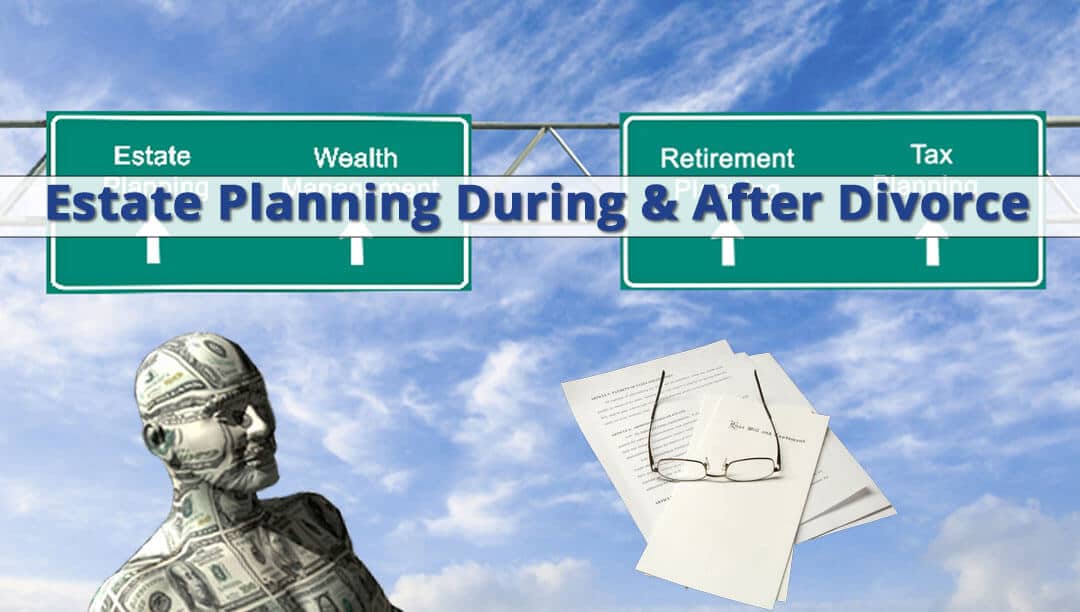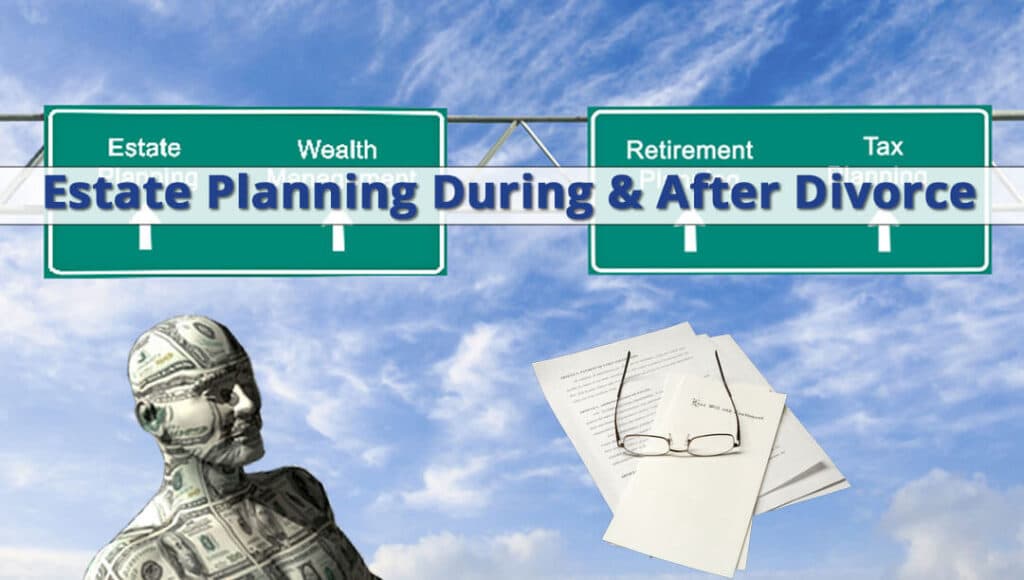Estate Planning During & After a Long Island Divorce
Protect Your Assets (and potentially your life) As Soon As Divorce Proceedings Begin Contact Us for a Free ConsultationCall 631-923-1910
Learn how to prevent your soon to be ex from making life-and-death decisions for you & having control over your estate while you’re going through a divorce.
Whether you are relatively young or a middle-aged or older adult, chances are you have (or should have) carefully planned for your future. If you are married, this generally involves planning for your spouse as well. You have likely created a will and established a trust to protect your assets and property after the death of you and your spouse. You may have even made decisions about who will care for your children if you have them, should something happen to both you and your spouse before your children reach the age of 18. Together, you and your spouse have likely purchased insurance policies that protect your family in the event of your disability or death. However, you might not have planned for divorce.
Getting a divorce means you will probably need to make several changes to your estate plan, especially if you have or will have another spouse.
Divorce affects both your current circumstances as well as your future. It also has an influence on your long-term objectives, such as your estate plan. If you made a will when you were engaged, or anytime after you got married, you most likely left your partner an inheritance of some kind.
You may have additionally designated your spouse to manage your money and make healthcare decisions in the event of your illness or incapacitation. If you don’t update your estate planning paperwork during or after your divorce, it’s highly likely that they may still have access to some of your benefits, assets, property, or accounts. Should this be done with the help of a dedicated estate planning lawyer? Here’s what to update and how to get legal help from a veteran Long Island New York divorce lawyer.
Divorce Preparation Versus Estate Planning
Usually, when a marriage comes to an end after divorce, this occurs with the finalization of a divorce settlement. Also called a divorce decree, a marital settlement agreement outlines how assets and property will be distributed to each spouse and if the couple shares children, the decree will make provisions for physically and financially providing for those children, aka child custody and child support.
Your divorce decree will address critical issues pertaining to the division of assets, whether spousal support will be paid, which spouse gets primary physical and legal custody of the children, and which parent will be afforded visitation.
Your divorce settlement will likely not address other important issues such as your spouse being in charge of making medical decisions for you if you become incapacitated, or who gets your life insurance benefits should you pass away. These are critical considerations that can significantly impact your future and the future of your family.
Do You Need Both a Divorce Lawyer & an Estate Planning Attorney?
Legal assistance, especially during a divorce, can be expensive. You may be wondering if you actually need to hire both a Long Island divorce lawyer and an estate planning attorney, or if your divorce lawyer can help you take care of everything.
In most cases, it’s going to be to your benefit to have both types of attorneys assisting with your case. An estate planning attorney cannot help you draft or finalize a New York divorce decree.
A divorce lawyer can only provide you with limited guidance regarding your estate, while a dedicated estate planning attorney can help you with every step of the complex process of updating your will and renaming beneficiaries on your life insurance policies and retirement accounts, etc. In almost all cases of a divorce involving significant assets and property, your best interests will be served by working with both an estate planning lawyer and an experienced New York divorce attorney.
Additionally, if you work with both an estate planning lawyer and a divorce attorney, these two key figures can work together to ensure there are no gaps or loose ends that could potentially have a negative impact on you in the future. These professionals can assist each other to ensure that your divorce decree and your estate plan are ironed out in a way that creates contingency plans that better fit your life post-divorce. Both your estate plan and your divorce settlement should align with one another, and your lawyers can work with each other to update paperwork and beneficiary designations to reflect both your new estate plan and divorce decree in a coordinated way.
How Getting a Long Island Divorce Can Impact Your Estate Plan
In New York, along with many other states in the U.S., assets named to your spouse in your will are automatically revoked upon resolution of your divorce. If you haven’t updated your will after your divorce, these assets will most likely go into probate where the state will determine how they are allocated to your family. However, there are other benefits that your spouse may still have access to if you don’t make any changes following your separation, such as retirement accounts, bank accounts, and your life insurance policy. Unless you identify someone else in your estate plan, your ex will most likely get the money if something happens to you.
Documents to Update When You’re Divorcing
If you’re considering getting a divorce or are going through the process of ending your marriage, consider updating the following critical documents now and don’t wait until your divorce is finalized:
Your Will
You can make changes to your will at any point, even if you are in the midst of getting a divorce. That said, after you begin the process of dissolving your marriage, both you and your spouse are prohibited from transferring property or assets or making changes to the assigned beneficiary on your retirement accounts.
There are several reasons you may want to make changes to your will as you go through the process of getting divorced. For example, if your will names your spouse as the administrator or executor of your estate (the individual responsible for the distribution of your assets and completing and filing all necessary paperwork), they may still be allowed to do this if you become incapacitated or die before changing this designation on your will.
Another important part of a will is the designation of an individual to become the guardian of your children if something should happen to both you and the other parent of your child. If you do not have this updated at the time of your divorce, and your will names your ex-spouse’s family as guardians, this could result in your children’s custody being given to your ex’s family even years after your divorce.
Your Power of Attorneys
You may have put Power of Attorneys in place when you created your will or managed your estate plan with the help of a lawyer. Many people named their spouse as the durable general power of attorney, which is a person who manages financial and legal affairs on your behalf if you pass away or become incapacitated.
If your Power of Attorneys documents are not updated at the time of your divorce, they may still remain legally binding and your ex-spouse may end up responsible for your legal and financial issues in the event that something unexpected occurs.
If you named your spouse as a health care power of attorney, they have the right to make healthcare decisions on your behalf if you are no longer able to make them. Again, this may stand if you become incapacitated after your divorce but before updating your Powers of Attorney documents.
Your Advance Directives
You may have also created an advance directive, also commonly referred to as a living will. This document outlines your desires and wishes if you become incapacitated and this results in a persistent vegetative state. For example, an advanced directive might include a Do Not Resuscitate (DNR) order, or a directive to remove life support after a particular period of time.
If you do not update your advance directive when you get divorced in New York, there is a possibility that your ex-spouse could be in charge of making life-and-death decisions for you if you are injured in an accident or have some other health crisis and can no longer communicate and make decisions for yourself.
GET YOUR FREE CONSULTATION TODAY
Call 631-923-1910 or fill in the form below
Get your complimentary consultation and case evaluation with our experienced attorneys today.
Your attorney will describe the many options available and determine together which is the right solution for you. By the end of this conversation, we’ll all understand how we can best help you to move forward.
No Cost or Obligation
There is no cost or obligation for this initial consultation. It is simply an opportunity for us to get to know each other, answer your questions and learn if Hornberger Verbitsky, P.C. is right the right law firm for you. Give us a call at 631-923-1910 or fill in the short form below for your free consultation and case evaluation.
Frequently Asked Questions About Estate Planning During & After a Long Island Divorce
How can I best protect my assets during a divorce?
While most, if not all, assets and property are vulnerable during a divorce, there is one valuable asset protection tool you can use. You can put some or all of your assets into a foreign bank account via an Offshore Asset Protection Trust, which maintains an international Limited Liability Company (LLC). This is one of the most powerful asset-protection methods available in a Long Island divorce.
If I don’t update my will after a divorce, will New York enforce the old terms?
If you made a will during the course of your marriage, any assets intended for your ex-spouse would be immediately rescinded if you divorced. According to New York state law, any inheritances given to your former spouse in your will are effectively canceled if the marriage is annulled or dissolved.
Life Insurance Policies & Retirement Accounts
When someone dies on Long Island, there are several things that are not considered part of the estate that are passed down through a person’s will. Instead, when you die, this property goes immediately to the designated beneficiary, regardless of whether or not that person is your ex-spouse. This includes but is not limited to your retirement accounts, like 401(k) and IRA accounts, pensions, life insurance policies, checking or savings accounts with a payable on death clause, or investment account that also has a transfer on death clause.
Once you finalize your divorce, you should reach out to the organizations that insure you and manage your accounts. Determine who is the designated beneficiary on your paperwork and make changes to this data if necessary. Don’t make the mistake of assuming that these beneficiaries are updated at the time of your divorce just because New York automatically removes your spouse as the beneficiary of assets in your will.
Contact Hornberger Verbitsky, P.C. Today for Help With Estate Planning During a Divorce
At Hornberger Verbitsky, P.C., we know how hard you’ve worked for your property and assets, and we’re committed to helping you protect them during your divorce. When you meet with us, we’ll go over your estate and help you determine what needs to change and how to proceed with the dissolution of your marriage.
Contact us today to learn more about the need for adequate estate planning assistance during the process of getting a divorce or to book a consultation to meet with one of our experienced Long Island divorce attorneys. Call now by dialing 631-923-1910 or fill out the short form on this page.
